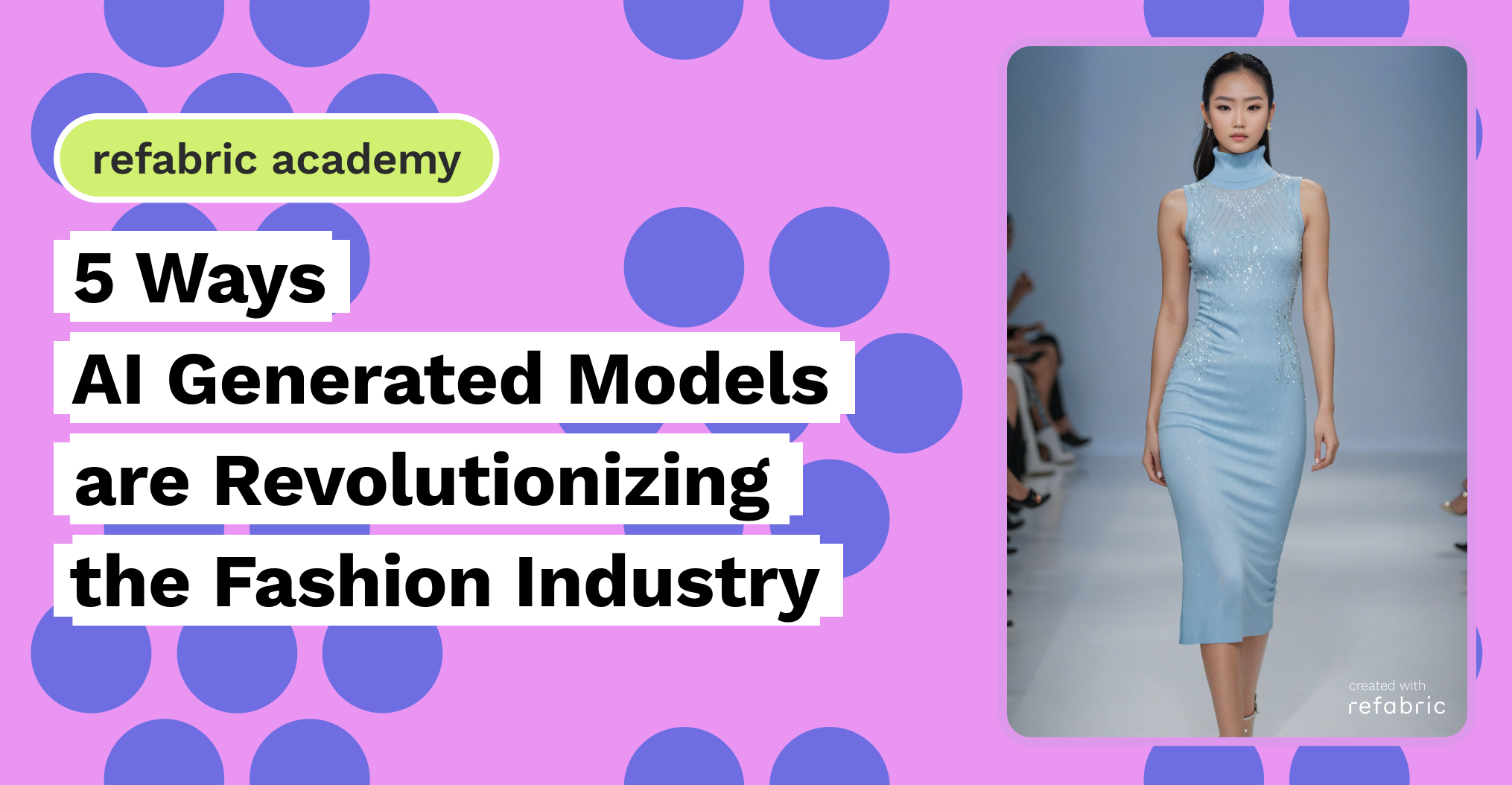The advent of AI generated models for fashion represents a groundbreaking shift in the e-commerce and fashion industries, promising to revolutionize the way consumers interact with and purchase clothing online. This technological advancement, leveraging the power of artificial intelligence, enables brands to generate lifelike images of models wearing their clothes from just a single picture of the item. This innovation not only enhances the online shopping experience but also offers a myriad of benefits to both consumers and retailers.
Transforming the Online Shopping Experience
One of the most significant impacts of AI generated models is the transformation of the online shopping experience. Traditionally, online shoppers rely on static images of clothing items, often worn by models who may not reflect the diversity of body types, sizes and ethnicities. AI generated models can be customized to represent a wide range of body types, skin tones, and ages, providing a more inclusive and personalized shopping experience. This capability allows consumers to see how a garment would look on someone who closely resembles them, making it easier to make informed purchasing decisions.
Enhanced Personalization
Personalization is a key trend in modern consumer behavior, and AI generated models are at the forefront of this movement. By using AI, retailers can create dynamic, personalized images that reflect individual customer preferences. For example, if a customer has a history of purchasing certain styles or colors, the AI can generate images that highlight those preferences, showcasing the items in a way that is most appealing to the shopper. This level of personalization not only enhances customer satisfaction but also increases the likelihood of a purchase, driving higher conversion rates for retailers.
Cost Efficiency and Scalability
For retailers, the use of AI generated models presents significant cost savings and scalability benefits. Traditional photoshoots are expensive and time-consuming, requiring the coordination of models, photographers, stylists and makeup artists. AI eliminates the need for these logistical challenges by generating realistic images from a single picture of the clothing item. This efficiency allows retailers to update their online catalogs more frequently and at a lower cost, ensuring that their product offerings remain fresh and up-to-date. Additionally, AI generated models can be scaled effortlessly to accommodate large volumes of products, making it an ideal solution for both small boutiques and large fashion brands.
Environmental and Ethical Benefits
The fashion industry has faced increasing scrutiny over its environmental impact and labor practices. AI generated models offer a more sustainable and ethical alternative to traditional photoshoots. By reducing the need for physical photoshoots, brands can lower their carbon footprint and minimize waste associated with travel, set construction, and garment production for shoot samples. Furthermore, this technology can help mitigate the ethical concerns related to the exploitation of models, providing a more respectful and fair approach to showcasing fashion.
Real-Time Adaptability
In the fast-paced world of fashion, trends can change overnight. AI generated models provide brands with the agility to adapt to these shifts in real time. Retailers can quickly update their product images to reflect the latest trends, ensuring that their offerings remain relevant and appealing to consumers. This adaptability is particularly valuable in the era of social media, where the speed of trend dissemination has accelerated dramatically. Brands that can swiftly respond to these trends are better positioned to capture the attention of fashion-conscious consumers.
The integration of AI generated models into the fashion industry marks a revolutionary advancement that enhances the online shopping experience, offers significant cost and scalability benefits, and promotes sustainability and ethical practices. By providing a more personalized, inclusive, and dynamic approach to fashion retail, AI generated models are set to transform the way consumers interact with and purchase clothing online. As this technology continues to evolve, it will undoubtedly play an increasingly vital role in shaping the future of fashion e-commerce.
